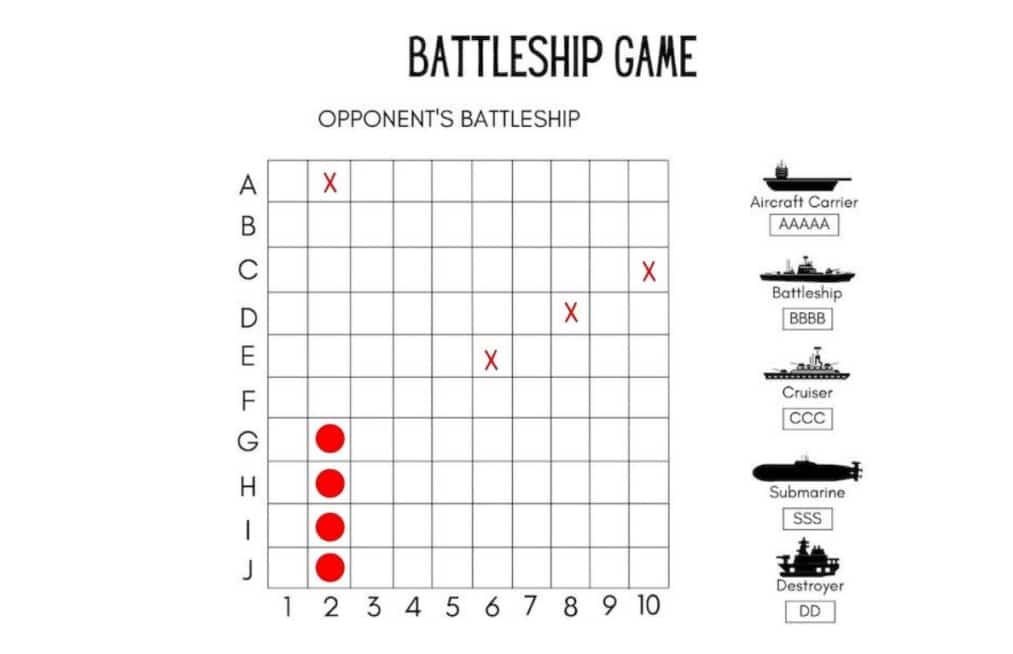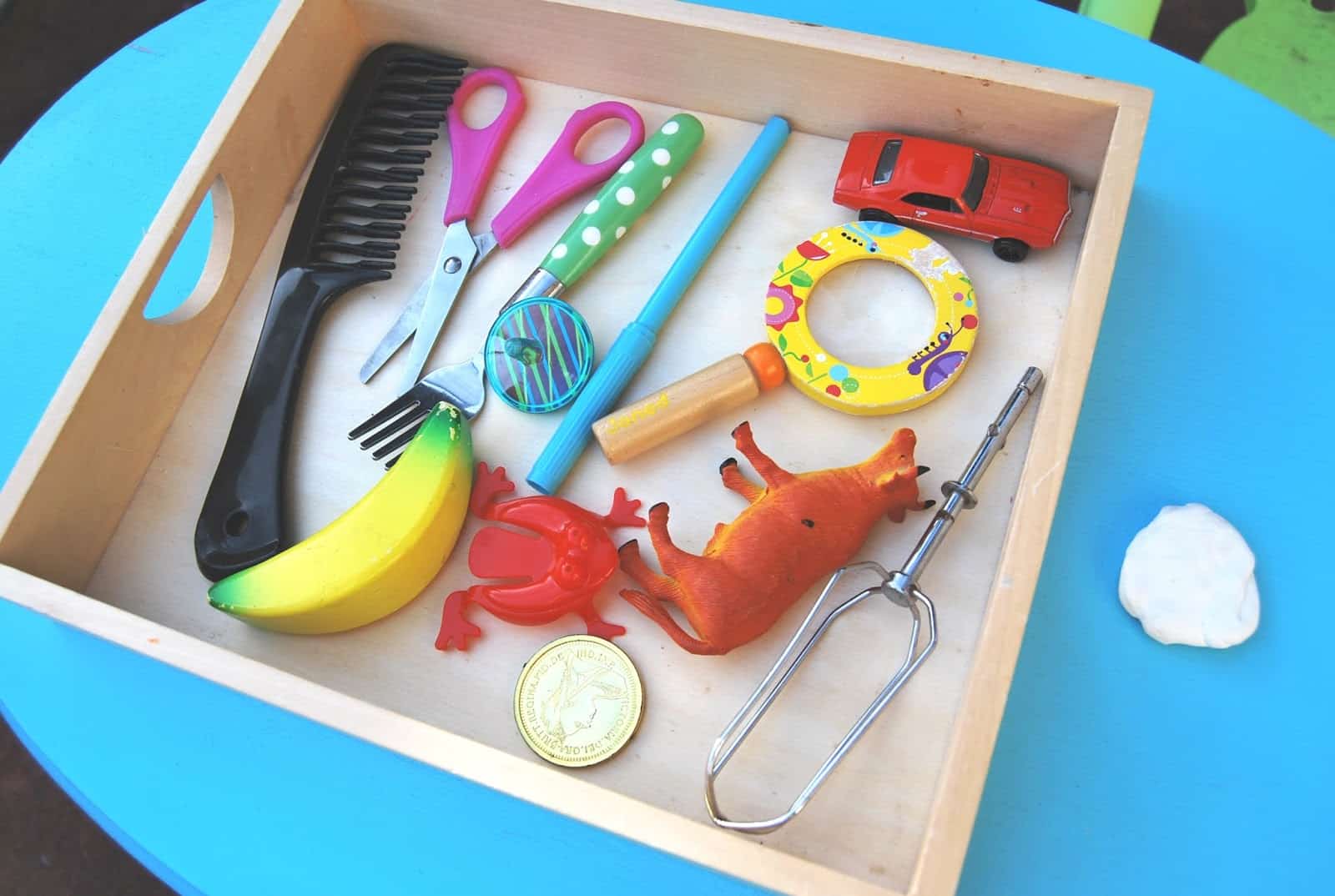
5 French Vocabulary Games for the Classroom
My secret to teaching vocabulary is making it fun.
If your students think, “this is boring,” they’ll resist your teaching every step of the way.
The great French vocabulary games that follow are classics that challenge students to use and reuse their vocabulary while having fun.
Because if students are having fun, they’ll learn those vocab target words without even realizing they’re doing it.
Read on to learn about five fun yet effective French vocabulary teaching games.
Contents
Download: This blog post is available as a convenient and portable PDF that you can take anywhere. Click here to get a copy. (Download)
1. Word Chain

This challenging game will force your students to explore their entire vocabulary repeatedly as they play. It has the added advantage of requiring absolutely no preparation time.
Divide the class into teams of 2 to 4 students.
Each team names a French word in turn. If you wish to increase the difficulty of the game, you may like to stipulate a particular subject. For example, sports and leisure activities.
The next team has to name a word that begins with the last letter of the previous word and so on. Thus, using our topic of sports and leisure, the first team may have suggested lecture (reading) and the second team may follow with équitation (horse riding). The third team may use natation (swimming) and so on.
At any point, a team may challenge another team to spell out the word they have given—any mistakes and points are deducted.
You have the option of making the game easier if you allow students to use their books. Despite making it easier, allowing access to books to check words also increases the effectiveness of the learning process. Reviewing their vocabulary lists in this way gives students a visual reference for each word as well as a quick-fire spelling revision—they are studying and they don’t even realize it.
Try playing this game with FluentU in addition to books. This will let your students find words that fit the prompt, as well as see them in use in authentic French videos like movie clips, music videos, interviews and more.
For a twist on this activity, students can challenge each other to use the word in a sentence. Clicking on the word in a video, or on its flashcard in the search will give students plenty of written and video example sentences that they can use to produce their own sentence.
One other way you can extend this activity is by adding all the words that each group used to flashcard decks on FluentU. Then, students can review these decks at home (or in class) through personalized quizzes that adapt to each student’s needs.
Each team has a time limit to state their word—time limits increase the intensity of student attention and alertness.
2. Le Pendu (Hangman)
This is a classic game that may be played in pairs or as a whole class.
A volunteer student thinks of a French word and draws short dashes on the board for each letter of the word. The student is under pressure to check their spelling very carefully.
The other students call out possible letters in an attempt to guess the word.
For each wrong guess, the student at the board draws part of the scaffold, gallows, noose, head, neck, body, legs and finally arms.
For each correct guess, the letter is written in its correct place on the board.
The goal is to guess the word before being hung.
Hangman forces students to review their vocabulary in a very effective manner. Students must look at the number of letters required and mentally check their vocabulary for words that could fit.
Long before they find the correct word, they have reviewed a number of other words in this process of elimination.
Hangman also enforces a careful review of spelling. This is a great opportunity to reinforce the need for correct use of accents. Encourage students to observe missing or incorrect accents by stipulating that any errors earn another stroke on the gallows.
3. La Bataille navale (Battleship)

This is another classic game that can be transformed into a veritable vocabulary feast.
Supply students with grids—8×8 squares is a good size. There are many ready-made Battleship game templates online, such as the example above, or if you have computers in your classroom, you could use this free French online version.
The squares in the leftmost column contain phrases such as:
- J’ai un/une (I have a)
- Tu as un/une (You have a)
- Il/elle a un/une (He/she has a)
The top row contains words or pictures representing words such as:
- trousse (pencil case)
- stylo (pen)
- règle (ruler)
Using pictures is more effective because it forces students to think of the word rather than simply reading it from the grid.
Students will draw 5 “ships” (3 ships 3 squares long, 1 ship 4 squares long and 1 ship 5 squares long) on their grid, keeping their grid hidden from their opponent.
Each student then takes turns to fire a shot using a complete phrase such as “J’ai une trousse.” If the shot hits one of the opponent’s ships, the opponent will say, “touché” (hit). If it’s a miss, “raté” (missed). When a ship is sunk, “coulé” (sunk).
Students are reinforcing their vocabulary by speaking aloud and listening. They get to practice their pronunciation as well as their vocabulary.
4. Jeopardy

This team game is a winner but it takes time to set up. The time consuming part lies in creating the questions and answers. However, once they get the idea, some keen students might like to create their own set of questions and answers to test their fellow students. Better yet, utilize Jeopardy Labs, which is an easy-to-use online Jeopardy customizable game. There are many games already available in French that other teachers have set up.
Plus, once you’ve created a set of questions and answers, you can reuse it. This is a great way to review vocabulary. You can find PowerPoint templates here.
These templates enable you to change the questions and answers to suit any vocabulary topic. You can also do this very simply on the blackboard.
Draw a grid, name each column with a question topic and give each square an increasing point value for an increasingly difficult question. For example, the 100 point topic question for a category involving French numbers might be a simple math question given in French whereas the question for 500 points might be a much more complicated one.
Likewise, all the categories have a similar scale of increasing difficulty.
Each team takes turns choosing a category, and the more points they play for, the more challenging the question. Of course, students do not know what the question will be, as all questions remain hidden until the team chooses a topic and point value.
If their answer is correct, they score those points, but if they are wrong, they lose the points.
One of the advantages of Jeopardy is that even while waiting their turn, all students are engaged in reviewing vocabulary in the eager hope that they can profit from the mistakes of the other team.
5. Memory Tray

This great game tests memory recall and vocabulary.
Divide the class into small teams—pairs probably will work best here.
Place a number of objects or pictures of objects on a tray. If, for example, you are working on classroom objects, you could fill your tray with different stationery items such as different colored pens, pencils, ruler, pencil case and so on.
Give the students 10 seconds to memorize the tray before you cover it with a cloth. Giving a time limit creates a sense of urgency about the task that heightens awareness and increases the students’ alertness. The increased alertness will aid memory recall.
Students have to recall the items in full detail. For example, “un stylo rouge, deux stylos bleus et une règle en plastique” (a red pen, two blue pens and a plastic ruler).
Students need to write down the words correctly—the first team with all the words correctly written wins. Working as a team allows students to help and correct each other. A student learning from other students in this way is a very effective teaching practice based on sound pedagogy.
Learning vocabulary need not be a mind-numbing exercise in futility.
With these games, your students will exercise their minds, expand their vocabulary and have a great time doing it.
Download: This blog post is available as a convenient and portable PDF that you can take anywhere. Click here to get a copy. (Download)



